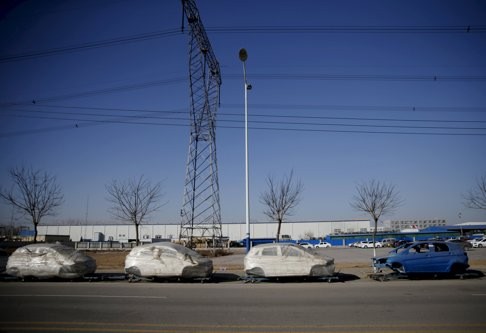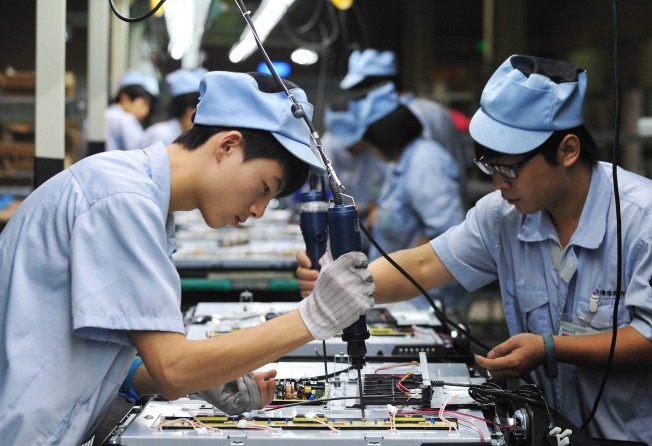
China’s industrial profits fall for first time since 2000 as slowdown blamed on weak demand, high costs
Annual industrial profits drop 2.3 per cent last year compared with 3.3 per cent growth in 2014; state to cut loans to loss-making firms in bid to restructure economy

China saw annual industrial profits fall for the first time in more than a decade, prompting calls for strong stimulus to boost growth, even as Premier Li Keqiang on Wednesday vowed to cut loans to zombie firms and increase financial support for high-tech industries.
Industrial profits fell 2.3 per cent last year, compared with 3.3 per cent growth in 2014, the National Bureau of Statistics revealed on Wednesday. It was the first annual decline since at least 2000, according to Bloomberg.
Profits in December fell 4.7 per cent from a year ago, compared with 1.4 per cent in November.
The gloomy figures add to the economy’s grim start to the year, coming amid growing panic over the depreciation of the yuan and state media reports on short sellers’ “attacks” in manipulating the market for the renminbi and other Asian currencies.
Mounting concerns about China facing a hard landing as well as billionaire investor George Soros’ message last week about shorting Asian currencies have prompted state media to defend the Chinese economy and currency in their reports.
Data from the statistics bureau showed that 12 out of 41 industrial categories saw profits decline last year, including a 74.5 per cent drop in oil and gas exploration, a 70 per cent fall in the non-ferrous metal sector and a 65 per cent decline in coal mining.

In particular, it blamed the declining Producer Price Index, which fell for 46 consecutive months, resulting in a 1.5 trillion yuan (HK$1.78 trillion) drop in last year’s industrial profits.
“Deflation is continuing to hurt the economy. The downward spiral by deflation and economic recession is a vicious circle,” China Merchants Securities said.
Government economist Yu Yongding called for expansive fiscal policy and loose monetary policy to stave off further slowdown in the short term. He suggested massive stimulus measures but advised caution in applying them, Bloomberg said.
Beijing has so far refrained from excessive cash injections and has ruled out quantitative easing to bolster growth. It has instead focused on restructuring the economy towards greater reliance on services while retiring obsolete capacity and shutting zombie firms.
Deflation is continuing to hurt the economy. The downward spiral by deflation and economic recession is a vicious circle
Li said at a State Council executive meeting on Wednesday that the government would cut loans to long-time loss-making firms or those that did not meet safety standards, Xinhua reported. State banks would be encouraged to provide loans to support the high-tech and innovation industry.
Last month, Beijing vowed to either turn around or close down the country’s zombie firms by the end of 2017. It has also pledged to cut excess capacity in the steel and coal sectors.
Li said the government would push on with its “Made in China 2025” plan, working out detailed guides for financial institutions to support the initiative. The plan is aimed at transforming China into a global manufacturing power that produces high-quality goods.
Beijing is also expected to offer fiscal subsidies to help retire obsolete capacity and expand the fiscal deficit. The central bank, meanwhile, remains reluctant to adjust banks’ reserve ratio to ease liquidity for fear of exacerbating the depreciation of the yuan.
Yu suggested Beijing issue bonds to fund infrastructure investment and adopt a flexible exchange rate policy.